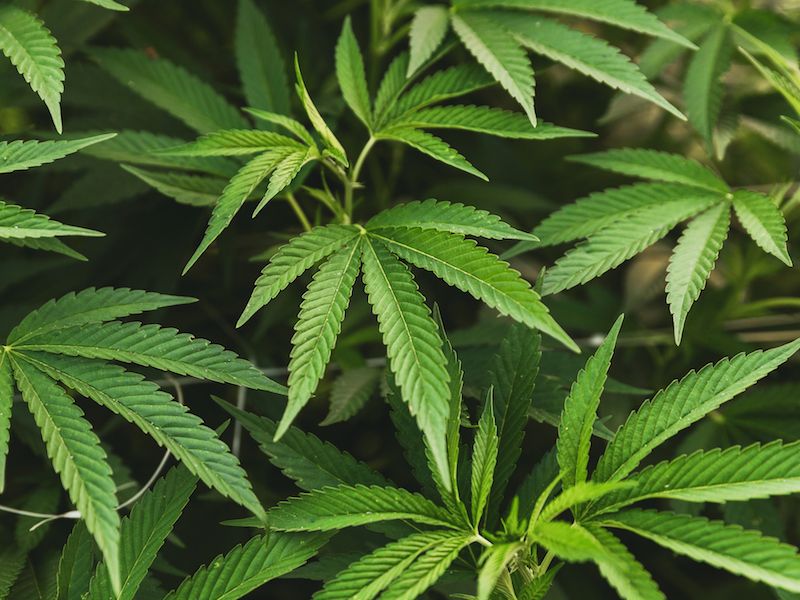
Public opinion about marijuana and cannabinoids have changed incredibly in the past several decades. Many states currently permit the use of marijuana, THC, or cannabinoid compounds for medicinal applications. Far fewer states have legalized pot for recreational uses, but even that would have been unthinkable even just a decade ago.
A group of compounds derived from the cannabis plant (the marijuana plant, essentially) are called cannabinoids. Despite their recent legalization in some states, we’re still uncovering new things about cannabinoids. We often think of these particular substances as possessing universal healing properties, but existing research suggests there could also be negative impact such as a strong link between cannabinoid usage and the development of tinnitus symptoms.
Many Forms of Cannabinoids
There are lots of forms of cannabinoids that can be taken now. It isn’t just weed (or ganja, or refer…..ok, there are lots of nicknames for marijuana so let’s move forward). Today, THC and cannabinoids can be obtained in pill form, as topical spreads, as inhaled vapor, and more.
Every state has it’s own regulations regarding which types of cannabinoids you can get, and under federal law, many forms are still illegal if the amount of THC is more than 0.3%. That’s the reason why many people tend to be rather careful about cannabinoids.
The problem is that we don’t yet grasp much about some of the lasting side effects or risks of cannabinoid usage. One example is the new information about how cannabinoids impact your hearing.
Cannabinoids And Your Hearing, Some New Research
A large number of ailments and medical conditions are thought to be helped by cannabinoids, regardless of what you like to call it. Based on information that is anecdotally available, conditions including Nausea, seizures, vertigo, and many more seem to be helped by cannabinoids. So researchers decided to find out if cannabinoids could help with tinnitus, too.
Turns out, cannabinoids could actually cause tinnitus. Ringing in the ears was described by over 29% of participants after implementing cannabinoids. And these participants had never had tinnitus symptoms before the study. Furthermore, marijuana users were 20-times more likely to report having tinnitus symptoms after 24 hours.
Added research indicated that marijuana use could worsen ear-ringing symptoms in individuals who already suffer from tinnitus. So, it seems rather certain that cannabinoids and tinnitus aren’t very compatible.
How Cannabinoids worsen tinnitus
Your tinnitus can be intensified by cannabinoids in a couple of tangible ways. First off, the incidents of tinnitus symptoms can get more frequent, you may notice the buzzing or ringing in your ears more frequently. Cannabinoids can also cause tinnitus symptoms to become more extreme. More intense ringing that can be harder to ignore can be the result.
The research also seems to suggest that cannabinoids can cause the onset of the initial symptoms of tinnitus. To put it a different way: if you didn’t suffer from tinnitus before, you could develop tinnitus after using cannabinoids.
Unclear Causes of Tinnitus
Just because this link has been discovered doesn’t actually mean the root causes are very well known. That cannabinoids can have an affect on the middle ear and on tinnitus is pretty clear. But it’s far less clear what’s causing this impact.
But we are aware that marijuana is one of the few commonly used mood-altering substances that brings about tinnitus (alcohol, as an example, hasn’t been shown to have a direct connection with tinnitus).
Of course, we will continue to do the research. People will be equipped to make a practical choice as to which of the many forms of cannabinoid to go with as we obtain deeper insight into their connection to tinnitus.
Beware The Miracle Cure
In recent times there has been a lot of hype created around cannabinoids by marketers. That’s partly because perceptions are transforming about cannabinoids (and, it could also mean that people are trying to move away from opioid use). But this new research makes it clear that cannabinoids can and do produce some negative consequence, specifically if you’re worried about your hearing.
You’ll never be able to avoid all of the cannabinoid fans and evangelists in the world, the marketing for cannabinoids has been very assertive.
But this new research definitely suggests a strong link between tinnitus and cannabinoids. So if you suffer from tinnitus, or if you’re concerned about tinnitus it may be worth steering clear of cannabinoids if possible, regardless of how many advertisements for CBD oil you might come across. It’s worth being cautious when the link between tinnitus and cannabinoids has been so firmly established.
